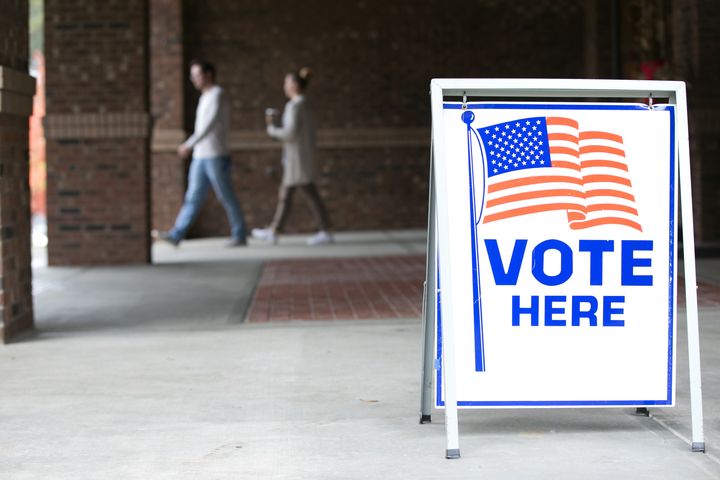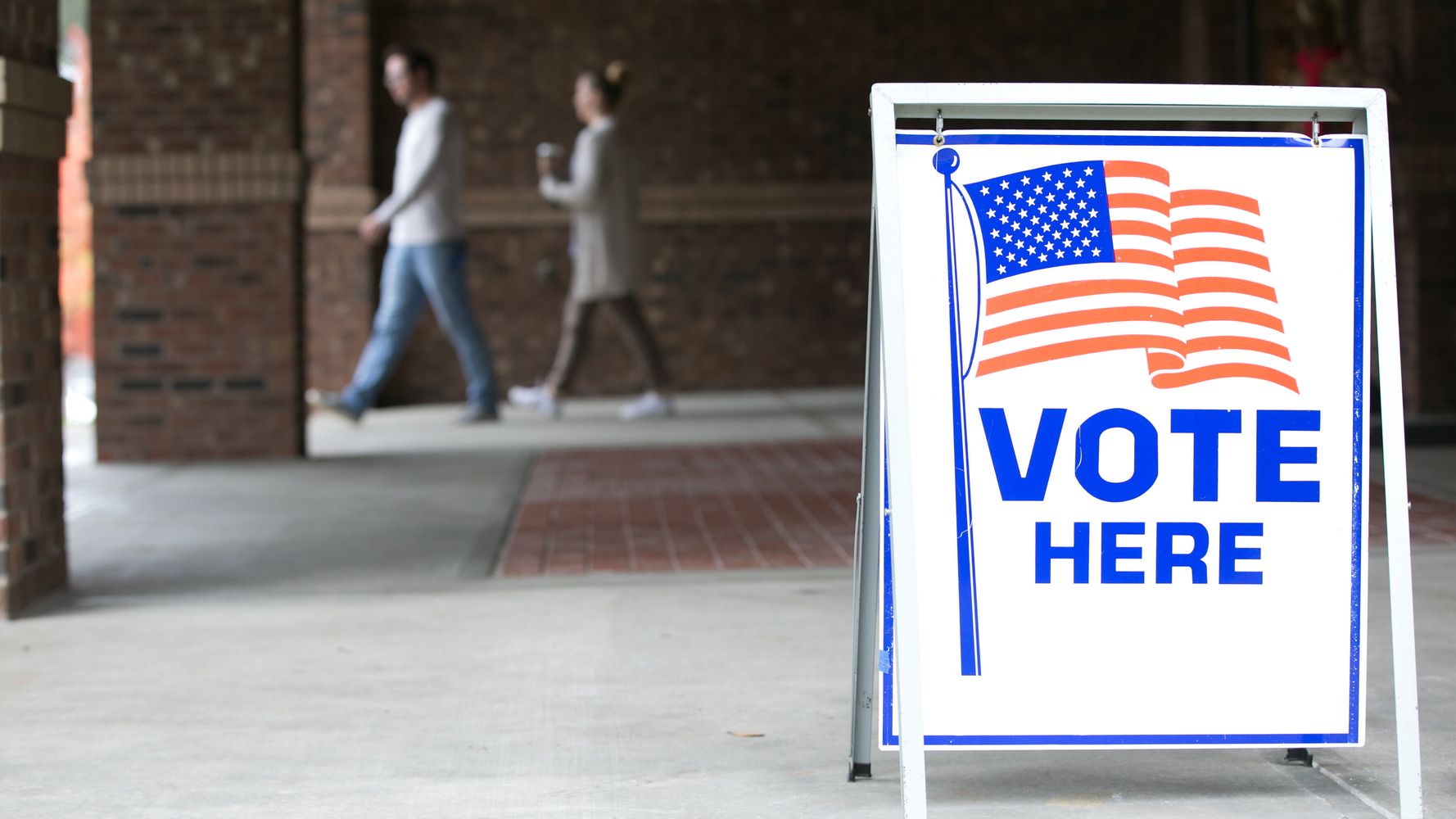[ad_1]
Officials in one Georgia city are intimidating voters by moving the polling location for an upcoming municipal election to the local police station, civil rights groups said this week.
The city council in Jonesboro, Georgia, which is about 18 miles south of Atlanta, decided to move the polling location to the police station in September because the old location, a firehouse museum, was not usable because of construction. But in two letters this week, civil rights groups in the state said the change to a police station, rather than a more neutral location, would make people scared to come out and cast their ballots. The move, the groups said, could violate sections of the Voting Rights Act that prohibit voter intimidation and discriminatory election practices.
“Forcing voters to cast their ballots under the steely gaze of armed law enforcement officers all but amounts to government-sponsored voter intimidation,” the Georgia chapter of the American Civil Liberties Union wrote in a letter sent Tuesday to city and county officials. “In this country’s not-so-distant past, law enforcement officers harassed, arrested, and beat Black people for trying to vote.”
“Forcing voters to cast their ballots under the steely gaze of armed law enforcement officers all but amounts to government-sponsored voter intimidation.”
ACLU of Georgia
Choosing the police station as a polling location is particularly alarming because of the relationship between law enforcement and African Americans, who make up more than 60% of the Jonesboro population, a coalition of civil rights groups wrote in a separate letter on Monday.
They noted that the city’s police chief resigned last year amid controversy over the department’s treatment of a Black Lives Matter protester. They also pointed out the county had an ordinance that inflicted a hefty fine for a trivial offense: allowing law enforcement to fine people up to $480 for sagging pants. Even people who have unpaid parking tickets could be dissuaded from showing up at the police station to vote, argued Julie Houk, an attorney with the Lawyers’ Committee for Civil Rights Under Law, one of the groups that signed the letter.
The groups, which also included The New Georgia Project, The Georgia Coalition for the People’s Agenda, and the state chapter of the NAACP, asked the city to rescind its decision to put the polling place in a police station.
The controversy underscores how voting rights groups are scrutinizing polling place changes and closures in Georgia and elsewhere, arguing they are a form of voter suppression. Since 2012, more than 1,688 polling places have been closed in places with a history of voting discrimination, according to a report by the Leadership Conference on Civil and Human Rights. In some cases, officials decide to close polling locations without giving careful analysis or justification for the closures. These actions could be a stealthy way to discourage would-be voters and influence election results.
Before 2013, the Voting Rights Act mandated that places like Georgia with a history of discrimination could not close or change a polling location without some oversight from the federal government. If officials wanted to make a voting change, they had to show the federal government it would not be discriminatory. In 2013, the Supreme Court struck down the provision, freeing officials to make changes without having to show the changes aren’t discriminatory.

During a Sept. 3 city council meeting, Jonesboro city council members adopted the proposal to switch the polling station to a police station without much discussion. When they opened up the floor for a public hearing, there was no one present from the public to speak about it. The city council is nearly all-white.
Jonesboro city manager Ricky Clark, Jr. said officials chose the polling locations because they believed it would be the most convenient for voters.
“The Chambers of the Police Department where the polling place will be located is the exact location where all Council Meetings of the City of Jonesboro take place, which makes it the most comfortable and familiar location for residents of the City of Jonesboro who will be coming to vote,” Clark wrote in an email. He added that the police department provided adequate parking and space, something that City Hall ― a location that will be used for early voting ― could not.
Clarke did not respond to inquiries about whether the city had considered polling places other than the police station.
“Government officials have been saying since the Jim Crow era that when they move a polling place it’s because of convenience,” said Sean Young, the legal director of the ACLU of Georgia. “For centuries that has been a pretext for discriminatory voter intimidation.”
It’s not unheard of to place a polling location in a police station, said Amber McReynolds, the former top election official in Denver, Colorado. But she added election officials should choose where to put the polling locations in consultation with the community.
Even if voters are familiar with the police station, going to vote is different than attending a city council meeting, said Houk. She added that Jonesboro is the county seat and there were other government buildings, schools and churches where officials could have put the polling location.
“Especially in the south, many people of color have strong memories of the use of law enforcement in suppression the Black vote, leading up in particular to when the Voting Rights Act was adopted and since then,” she said. “A city council meeting doesn’t have the same sort of standing, in my view, as say a polling place, where people are going in there to determine whether these elected officials should be continued in their roles.
REAL LIFE. REAL NEWS. REAL VOICES.
Help us tell more of the stories that matter from voices that too often remain unheard.
[ad_2]
Source link

